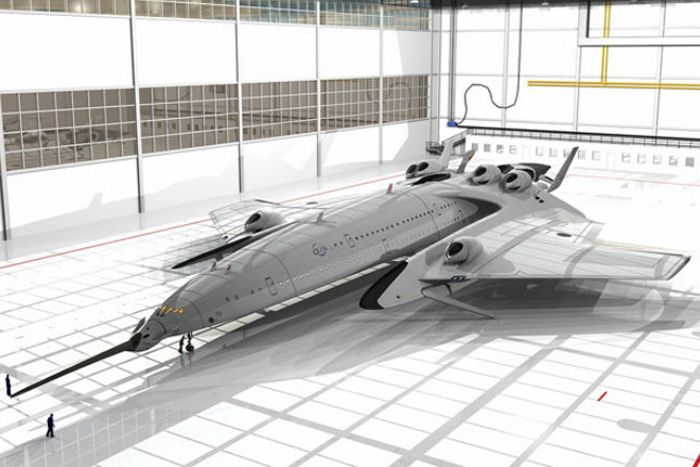Fusion Reactor Powers Futuristic Airliner

If today's aviation advances aren't moving fast enough for you — tray table technology hasn't budged in decades — you'll want to check out the futuristic visions of Spanish industrial designer Oscar Viñals.
The Flash Falcon is a future concept jetliner powered by portable fusion reactors. That technology isn't here yet, of course, but Viñals kind of specializes in "what if?" scenarios.
Tasty Tech Eye Candy Of The Week (May 15)
After all, this is the man who brought us the Sky Whale passenger airliner and the enormous GIGAbay cargo plane.
Viñals' latest creation is currently featured on the design-forward website Tuvie, which is a fun place to browse any day of the week, really. In additions to a collection of rather gorgeous images, Viñals provides some technical details on his space-age concept aircraft.
The Flash Falcon design envisions a future where small fusion reactors can power advanced and incredibly powerful electric-combustion (EC) engines. Thrust is generated by superconductive fans along with special combustion chambers.
The Flash Falcon's engines would be flexible and powerful enough to enable vertical take-off and landing. At cruising altitudes, the aircraft could easily attain supersonic speeds up to Mach 3. That will get you from New York to Paris in about three hours.
Sign up for the Live Science daily newsletter now
Get the world’s most fascinating discoveries delivered straight to your inbox.
Supersonic Electric Airplane Next from Elon Musk?
In its current design iteration, the Flash Falcon could carry upwards of 250 passengers on two roomy decks. The wings are designed to be flexible as well, and can change their angle of inclination in relation to the central fuselage.
Up in the cockpit, holographic windows give the pilots expanded views and control options. Viñals has even included a theoretical "Sound Boom Eraser System" for muffling the noise generated when the aircraft penetrates the sound barrier.
Such a polite young man. Check out the project page for more details and blueprints.
Originally published on Discovery News.
Most Popular




